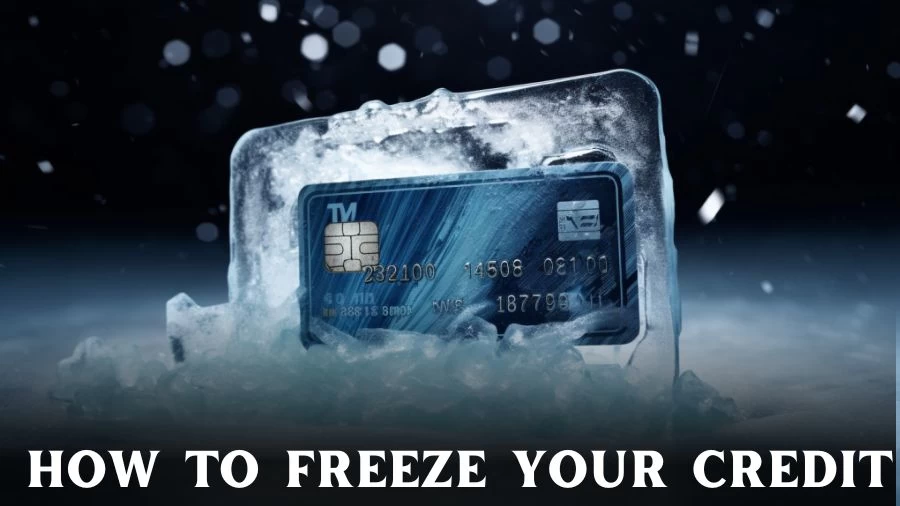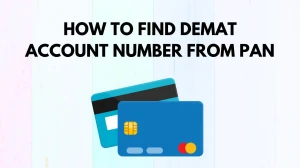
How to Freeze Your Credit? What is a Credit Freeze?
Freezing your credit involves contacting major credit bureaus like Equifax, Experian, TransUnion, online or by phone, providing personal information, and setting up a PIN to prevent unauthorized access, enhancing financial security.
by Kowsalya
Updated Aug 30, 2023
On This Page
How to Freeze Your Credit?
To implement a credit freeze, a security measure that safeguards your financial information, you'll need to communicate with the three main credit bureaus. Here's a detailed guide on how to proceed:
- Equifax: You can initiate a credit freeze with Equifax either online via their website at
- https://www.equifax.com/personal/credit-report-services/credit-freeze/ or by calling them at 800-685-1111. Equifax doesn't require you to set a unique PIN for freezing and unfreezing your credit.
- Experian: To enact a credit freeze through Experian, visit their website at
- https://www.experian.com/freeze/center.html or contact them by phone at 888-397-3742. Experian, unlike the other bureaus, requires you to create a unique PIN that allows you to both freeze and unfreeze your credit as needed.
- TransUnion: You can establish a credit freeze with TransUnion by visiting their website at
- https://www.transunion.com/credit-freeze or by calling them at 888-909-8872. Similar to Experian, TransUnion necessitates the creation of a personalized PIN for the purpose of freezing and unfreezing your credit.
To effectively freeze your credit, you'll be required to furnish essential personal details to each credit bureau. These details typically include your full name, current address, date of birth, Social Security number, and other pertinent identification information. It's worth noting that while Equifax doesn't mandate a PIN, both Experian and TransUnion enforce this extra layer of security to ensure the process remains under your control.
It's important to highlight that implementing a credit freeze is completely free of charge. This proactive measure assists in protecting your financial health by curtailing unauthorized access to your credit reports. Remember that it's necessary to carry out this process with all three major credit bureaus, as each one maintains a separate credit report. Once the credit freeze is in place, it will remain active until you decide to lift it, offering you added peace of mind against potential identity theft and unauthorized financial activities.
What is a Credit Freeze?
A credit freeze, often referred to as a security freeze, empowers you to exercise control over who can access your credit reports. By initiating a credit freeze, you can significantly diminish the risk of identity thieves exploiting your information to open new lines of credit using a method that necessitates a thorough examination of your credit reports.
It's important to note that while freezing your credit restricts general access, it doesn't result in a complete and absolute lockdown of your credit history. Entities with whom you maintain existing credit arrangements will retain the ability to view your credit history even in the presence of a freeze. This ensures that your established creditors and lenders can continue to assess your creditworthiness when needed.
However, it's essential to recognize that a credit freeze doesn't create an impenetrable barrier. In specific cases, government agencies that possess a valid court order or search warrant can still gain access to your credit file. This provision ensures that lawful processes and legal obligations can be upheld, granting access to your credit information even with a security freeze in place.
In essence, a credit freeze is a valuable tool that empowers you to safeguard your credit reports from unauthorized access. While it grants exceptions for established creditor relationships and lawful government actions, it effectively thwarts identity thieves attempting to exploit your credit information for fraudulent activities.
How Does a Credit Freeze Works?
When you initiate a credit freeze with the three primary national credit bureaus—Equifax, Experian, and TransUnion—you're essentially conveying your preference to restrict unauthorized access to your credit file. However, there are certain exceptions that determine who can and cannot view your credit information while the freeze remains active.
The duration for which a credit freeze is maintained is entirely at your discretion; you have the authority to decide when to lift it. It's noteworthy that freezing your credit has become free of charge due to a legal modification in 2018. Previously, there used to be a fee associated with both implementing and removing a credit freeze.
Importantly, enacting a credit freeze has no adverse repercussions on your credit score, and it doesn't hinder your ability to acquire your annual complimentary credit reports. Should you choose to seek loans or apply for credit cards, it will be necessary to temporarily lift the credit freeze to enable creditors to access your credit file. However, certain activities such as job applications or apartment rentals do not require you to lift the credit freeze.
In essence, a credit freeze empowers you to exercise control over who can access your credit data, bolstering your security against unauthorized credit inquiries. This proactive measure ensures that while you may need to temporarily lift the freeze for specific financial endeavors, your overall credit health remains safeguarded.
Should I Freeze My Credit?
Financial experts strongly advise individuals to take the proactive step of implementing a credit freeze on their credit reports as a means of exercising vigilant oversight over their accounts. While the practice of periodically scrutinizing credit card statements, bank records, or credit reports does offer a level of responsiveness, it's important to recognize that such actions are merely reactive measures and lack the ability to proactively thwart potential instances of fraud.
A credit freeze emerges as a cost-free and potent tool in the fight against identity theft. By imposing limitations on who can access your credit reports, it establishes an effective barrier of protection.
However, it's crucial to maintain a clear understanding that, although credit reports offer valuable insights, they are not an infallible shield against fraud. While they indeed curtail access to your credit information and act as a deterrent against unauthorized account openings, they do not possess the capability to prevent scenarios where someone gains access to your credit card number.
In essence, while regular scrutiny of credit-related activities is valuable, a credit freeze constitutes a more robust and proactive defense against potential fraudulent activities. It's imperative to comprehend that while credit reports serve as a crucial line of defense, they don't provide an all-encompassing solution. Therefore, a combination of measures, including credit freezes and ongoing monitoring, is recommended to enhance your overall financial security.
Who Can Access My Credit Once It’s Frozen?
A credit freeze imposes restrictions on the majority of credit inquiries; however, certain entities retain the ability to access a credit report that has been subjected to a freeze, contingent on specific circumstances. Here is a comprehensive list of entities that maintain the capacity to access your credit report even after a credit freeze:
- You: You are permitted to view your own credit report at any time, even when it is frozen.
- Lenders and Card Issuers: Entities with which you have active accounts, such as lenders and credit card issuers, possess the privilege to perform credit checks as part of their routine account management processes.
- Landlords and Rental Agencies: Landlords and rental agencies have the authority to scrutinize your credit report when assessing your suitability as a potential tenant.
- Phone Carriers and Utility Companies: Phone carriers and utility providers may access your credit report to ascertain the amount of security deposit required for equipment or services.
- Debt Collection Agencies: Debt collection agencies are permitted to access your frozen credit report when pursuing overdue payments.
- Child Support Agencies: Entities responsible for child support determination can access your credit report for the purpose of calculating child support obligations.
- Credit Card Issuers for Prescreening: Credit card issuers engaging in prescreening activities, aimed at extending credit offers, retain the right to access your credit report.
- Auto Insurance Companies: Auto insurance companies are authorized to factor credit scores into their rate-underwriting process.
- Authorized Potential Employers: Prospective employers, with your authorization, can conduct background checks that involve accessing your credit report.
- Government Agents: Government agents executing court orders or warrants are granted access to your credit report as part of their lawful proceedings.
In essence, while a credit freeze is effective at curbing widespread access to your credit information, these exceptions exist to ensure that necessary processes, like account management and legal actions, can still be carried out. This nuanced approach strikes a balance between safeguarding your data and accommodating legitimate requirements.
How to Unfreeze Your Credit?
At a certain juncture, you might determine that the credit freeze is no longer necessary, or you could find yourself in a situation where temporarily lifting the credit freeze becomes essential perhaps for activities like applying for a mortgage, credit card, or various loans.
To lift the credit freeze on one or all of your credit reports, you will need to engage with the respective credit bureaus individually. For TransUnion and Experian, you'll be required to furnish the PIN that you established during the initial setup process.
Once you initiate a request for the credit freeze to be lifted with a credit bureau, there are stipulated time frames within which they must respond. In scenarios where you make the request via phone or online channels, the credit freeze must be removed within the span of one hour. Conversely, if the request is submitted through mail, the credit freeze should be lifted no later than three business days following the receipt of your request.
This procedural framework ensures that you have the flexibility to manage your credit freeze according to your needs, efficiently adapting it to various financial circumstances. It's crucial to grasp these protocols to effectively navigate the process and ensure timely adjustments to your credit status.
When to Get a Credit Freeze?
If you're not currently in the process of actively seeking out new credit cards or loans, opting to freeze your credit is a prudent and astute decision. With the elimination of fees for both freezing and unfreezing credit, some sources strongly advise all individuals to proactively embrace this protective measure.
In situations where you suspect that your personal information might have been compromised, particularly in the context of a data breach, it's highly recommended to implement a credit freeze. This becomes especially crucial when vital details, such as your Social Security number, could potentially have been exposed. By taking this step, you add an essential layer of security to your financial well-being, safeguarding against potential unauthorized access to your credit information.
What Are the Pros and Cons of Freezing Your Credit Report
Enacting a credit freeze offers a range of advantages and disadvantages worth considering when making the decision. If you're uncertain about whether to proceed with a credit freeze, here's a balanced assessment of the pros and cons:
Pros:
- Enhanced Security: A credit freeze serves as a robust safeguard against potential identity theft and fraudulent activities, effectively securing your credit report.
- No Fees: Unlike in the past, there is no longer a cost associated with freezing or unfreezing your credit, making this protective measure easily accessible.
- Convenience: The process of freezing or unfreezing your credit has been streamlined, allowing for swift and straightforward adjustments online.
- Credit Score Unaffected: Importantly, opting for a credit freeze will not inflict any negative impact on your credit score.
Cons:
- Partial Blocking of Access: It's important to note that a credit freeze does not entirely eliminate access to your credit file; specific entities still retain the ability to access it under certain circumstances.
- Unfreezing for Loan Applications: If you plan to apply for loans or credit, you'll need to lift the credit freeze temporarily, which may require additional steps and time.
Choosing to implement a credit freeze can be a prudent decision if you are concerned about the potential risks of identity theft and have no immediate plans to seek new credit opportunities.
It introduces an additional layer of protection to your credit reports, offering reassurance in the face of the rising prevalence of fraud and identity theft. The added benefit of not incurring fees for implementing or removing the freeze adds to its appeal. However, it's worth acknowledging that alternative measures also exist for safeguarding your credit history against unauthorized access.
How to Freeze Your Credit-FAQs
1. How do I freeze my credit?
To freeze your credit, you need to contact each of the three major credit bureaus individually: Equifax, Experian, and TransUnion.
2. Is there a cost to freeze my credit?
No, freezing your credit is now free of charge.
3. What information do I need to provide to freeze my credit?
To freeze your credit, you'll typically need to provide personal information such as your full name, current address, date of birth, Social Security number, and possibly other identifying details.
4. How long does it take to freeze or unfreeze my credit?
For online or phone requests, credit bureaus must lift a freeze within one hour.
5. Will freezing my credit affect my credit score?
No, freezing your credit will not impact your credit score.




